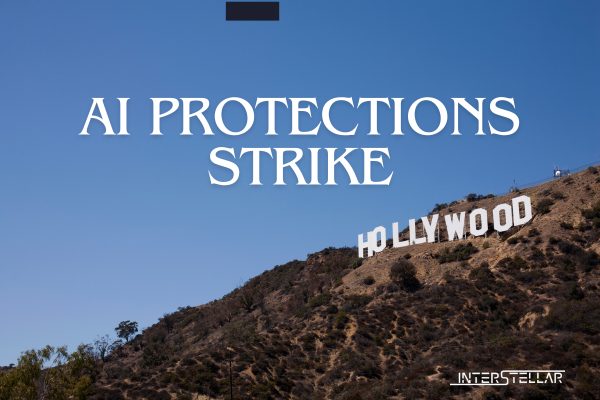Videogame Voice Actors and Motion-Capture Performers Strike Over AI Protections
SAG-AFTRA Calls Strike Amid AI-Related Labor Disputes
Voice actors and motion-capture performers in the video game industry have initiated a strike due to failed labor contract negotiations centered around AI-related worker protections. This strike marks another significant work stoppage in Hollywood.
Negotiation Breakdown
The SAG-AFTRA union announced the strike of the Interactive Media Agreement, effective July 26, following prolonged negotiations with major video game companies such as Activision Productions, Electronic Arts, Epic Games, Take-Two Interactive, Disney Character Voices, and Warner Bros Discovery’s Games. The contract, which expired in November 2022, had been extended monthly during the ongoing talks.
Despite reaching agreements on many issues, the union stated, “The employers refuse to plainly affirm, in clear and enforceable language, that they will protect all performers covered by this contract in their AI language.”
Dual Strikes in Hollywood
This strike by video game performers comes in addition to the ongoing strike by film and television actors, also represented by SAG-AFTRA, which began in July last year over AI-related concerns. This dual strike is the first in Hollywood in 63 years.
Unlike the unified negotiating position of movie and TV studios represented by the Alliance of Motion Picture and Television Producers (AMPTP), the video game industry lacks a similar collective group. This absence makes it likely that one or more game developers may accept the union’s demands, according to Wedbush managing director Michael Pachter.
Core Issues Beyond AI
In addition to AI protections, SAG-AFTRA is negotiating for higher pay, medical treatment, and breaks for motion-capture performers. The union claims that pay for video game performers has not kept pace with inflation and seeks more protections for motion-capture artists who wear sensors or body suits to create character movements.
Industry Response
“We are disappointed the union has chosen to walk away when we are so close to a deal,” said Audrey Cooling, spokesperson for the video game producers involved in the negotiations. She noted that significant common ground had been found on 24 out of 25 proposals, including historic wage increases and additional safety provisions.
The producers’ offer includes AI protections requiring consent and fair compensation for all performers under the Interactive Media Agreement, Cooling added.
However, Wedbush’s Pachter pointed out that voice acting represents a minor portion of game development costs, which average over $80 million. Voice acting typically accounts for about $500,000 of this total. “It just isn’t worth holding up a game’s release to save a few hundred thousand dollars,” Pachter said.
Future Implications
The outcome of these negotiations could have significant implications for the broader entertainment industry, particularly regarding the integration and regulation of AI in creative roles. The resolution of this strike may set precedents for how AI is addressed in labor agreements across various media sectors.





